
A Little Goes A Long Way
Your gift today is an investment in BrainTrust services that improve the lives of those with brain injury.
Donate Today


*This blog post was created during the Central Okanagan wildfire emergency in August 2023.
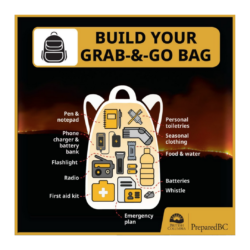
Items to include:
Central Okanagan Emergency Operations has up-to-date official information on evacuation alerts/orders, emergency shelter sites, support for evacuees, and more!
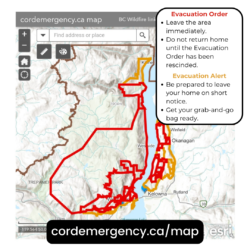
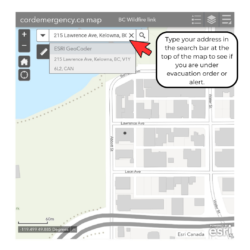
At cordemergency.ca/map you can view a map of the evacuation zones and type your address in the search bar (at the top of the map) to see if you are under evacuation order or alert.
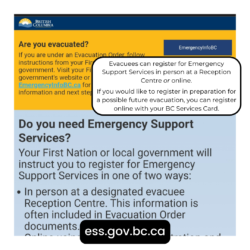
If you have been evacuated, register for Emergency Support Services in person at an official Reception Centre or online at ess.gov.bc.ca. If you would like to register in preparation for a possible future evacuation, you can register online with your BC Services Card.
Bring a pen and notepad so you can write down important information, like instructions or addresses.
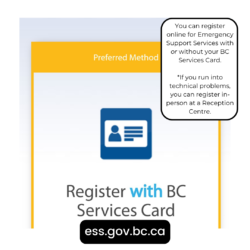
You can register online with or without your BC Services Card. Download the BC Services Card app.
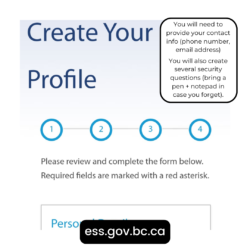
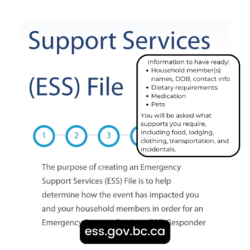
When registering, you may be asked to provide information such as:
People living with disabilities face additional challenges in emergency situations, like wildfire evacuations. Brain injury is a disability with many hidden impacts.
Disasters, like wildfires, can be overwhelming. Stress may make some symptoms worse. Use strategies & tools that have helped you in the past. You may have to ask for assistance in circumstances you usually do not and that’s okay.
Check in with your support network – this could be a friend, family member, neighbour, or support worker.
Having a brain injury means you may need to consider preparedness actions above and beyond the “basics”. For example, your emergency kit may include additional items such as:
Write down or ask for paper copies of important information. Ask others to repeat information if necessary and give you additional time to respond.
Focus on positive memories and the skills you’ve used to get through other hard times.
When you can, take time to rest. Your body and brain need time to recover when stressed. For example, choosing to sit instead of stand can help you conserve energy.
Practice how to quickly explain to people the best way to help you. You can also create your own brain injury ID card by writing down your name and a list of symptoms or difficulties that impact you.
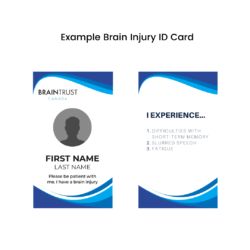
You can’t tell someone has a brain injury just by looking at them and some people may not be comfortable disclosing the details of their injury. It is good practice to ask the individuals you are helping if they require any accommodations.
Some symptoms (e.g., slurred speech, balance problems) may be mistaken for other concerns (e.g., intoxication). It is important to be patient, non-judgmental, and to actively listen.
Examples of physical & sensory-related supports:
Examples of cognitive & mental health-related supports:
The bottom line: Every brain injury is unique. If you’re not sure what a person wants or needs, ask politely and respectfully if they want your help and how you can best assist them.
Prepared BC – Information & resources on emergency preparation & response.
Emergency Info BC – Updates on emergency situations in British Columbia.
Animal Lifeline Emergency Response Team – Contact if you need assistance evacuating pets & livestock.
Drinking Water for Everyone – Information on water quality advisories. Type your address or region in the search bar at the top to learn about water quality advisories that may be affecting you.
IQ Air – Check the air quality in your region.
Drive BC – Updates on road conditions and closures in British Columbia.